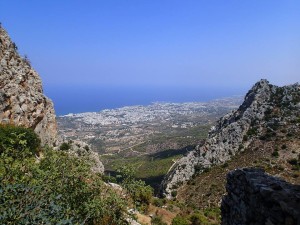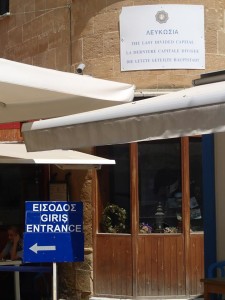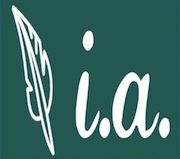Turkish people have a tradition that is closely linked to the making and drinking of coffee. Once a bride is betrothed, the the bride’s family hosts a formal ceremony where the groom and his family sit for coffee and visit with the bride’s family. For those unfamiliar with Turkish Coffee, the drink is prepared in a small long handled copper pot called a cezve (pronounced: “jezvay”). Normally the coffee is fine ground and scooped directly into the cezve followed by water. The concoction is slowly heated without anything more than a small stir with a wooden rod.
Turkish coffee for those who have never enjoyed it, is fabulously tasty. The preparation is as much a ritual as is drinking it. For the bridegroom during the traditional ceremony the coffee is something that must be endured and without any sort of reaction other than a complement to the bride. Part of this tradition is that the bride prepares a special cup of coffee for the groom. In it is a strong dose of salt! As the ceremony concludes, after everyone has enjoyed their coffee and meeting one another, the groom complements his bride and wishes that she would always prepare the coffee with such passion.
Reflecting on this pre-marital Turkish coffee ceremony, I’m reminded of my first experience with Turkish Coffee. It was in the Greek South of Cyprus back in ’89.  On the Akrotiri peninsula there is an RAF airbase. One of my morning rituals while living and working there was to drop by one of the coffee “shacks” on the SBA (SBA is short for Sovereign Base Area). While there I would order up a traditional Cyprus sandwich with halloumi, onion and tomato on a roll (the roll was likely from the British influence – Cyprus was a British colony until 1960). Halloumi is goat cheese that you can throw right on a grill, literally. It doesn’t melt and is often prepared over an open flame and remains dense and intact no matter what the heating temperature.
On the Akrotiri peninsula there is an RAF airbase. One of my morning rituals while living and working there was to drop by one of the coffee “shacks” on the SBA (SBA is short for Sovereign Base Area). While there I would order up a traditional Cyprus sandwich with halloumi, onion and tomato on a roll (the roll was likely from the British influence – Cyprus was a British colony until 1960). Halloumi is goat cheese that you can throw right on a grill, literally. It doesn’t melt and is often prepared over an open flame and remains dense and intact no matter what the heating temperature.
What I found remarkable about my morning routine wasn’t simply the culinary joy of my breakfast sandwich, but that it took less time to prepare than did my Turkish coffee (keep in mind that this is Greek South Cyprus and everyone still refers to the coffee as Turkish coffee). I don’t know the Greek Cypriot word for cezve, but the little copper pots look exactly the same. I dove into my sandwich while watching the Cypriot woman who worked in the coffee shack, place the copper cezve of water and coffee grounds into hot sand heated in a large metal tray above a bed of white hot coals. Though Cyprus is a hot dry island for more than half the year, during the winter months, I enjoyed the warmth of the small building while watching my coffee being prepared.
I learned that when I was done with my coffee, I should turn the demitasse with the wet expended grounds still in it, upside down on the cup’s small saucer. The Greek Cypriot woman would then come over to collect it, but first she would turn the cup upright, look inside, and mumble something in her native language, often interpreted by her husband who prepared the sandwiches. I was being told my “fortune” and it had the same impression as reading a horoscope out of the morning newspaper.

There is a dark story related to coffee and Cyprus that I haven’t been able to purge from memory. Though Cyprus is a peaceful holiday playground these days, it has always been a contested place. It is uniquely situated to be accessible to anyone in a part of the world where turmoil, violence, and espionage are at the center of activity. My work on Cyprus included tight coordination with the U.S. Embassy in Nicosia, the divided capitol city in the heart of the island’s interior. There, I met one of the military attache’s, Thomas Mooney. He was a great guy and made sure to introduce me to the Ambassador and the rest of the embassy staff. I didn’t hear about what had happened to Tom until long after leaving Cyprus, well over a decade ago.
There are plenty of versions written about Tom’s fall. All of them are steeped in mystery, intrigue, and possibly conspiracy. The best by far is a posting of a memo Tom wrote, which can be read from this link. In the end, what Tom said was “there’s good coffee here and good people up on this mountain.” He signed the memo, “…and I love the coffee.”
The author lived and worked on RAF Akrotiri, Cyprus as a tenant of a small American operational reconnaissance unit in ’89, ’90, ’91, 2000, and 2001. He was at that time, the commander of the “Olive Harvest” mission and flew the U-2 Dragon Lady during his tenure on the island. If there is one source suitable for learning about the modern history of Cyprus the easy way, it is Gregory S. Lamb’s debut novel: The People In Between: A Cyprus Odyssey



Cheese you can grill without it changing form? That sounds “filling”
Like all tasty foods, halloumi is a super high calorie, high cholesterol cheese – probably responsible for a heart attack or two.